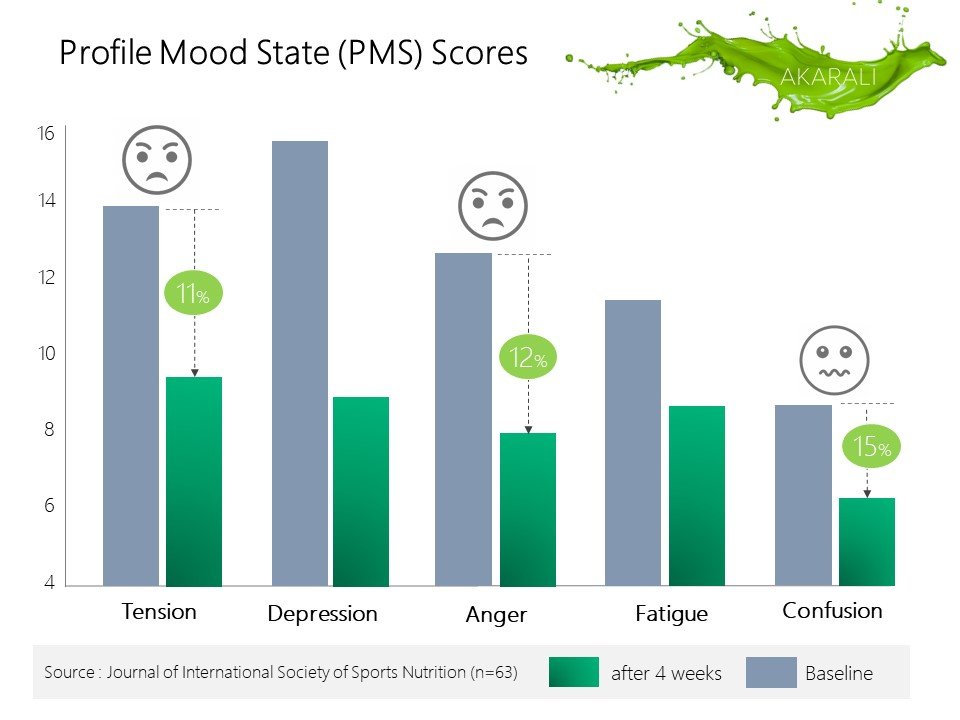

We live in a global crisis. With coronavirus hitting almost 80 countries around the globe, how we manage stress at work has transformed to how well we manage anxiety and stress at home.
China, Denmark, El Salvador, France, Ireland, Italy, New Zealand, Poland, and Spain have implemented the world’s largest and most restrictive mass quarantines. As business activities continue to adapt in the new environment, we may experience a new form of stress to cope with anxiety and uncertainty arising from the global coronavirus pandemic.
Centres for Disease Control and Prevention outlined the types of stress that you may experience during an infectious disease outbreak:
Now, does your professional schedule stretch beyond 9 to 5 in the past? Chances are, you’ve been in many situations where working long hours are necessary and stress becomes unavoidable.
However, in light of the recent development of coronavirus, imagine being locked down with self-quarantine imposed and forced to work from home. How do you manage your workload, slipping deadlines and at the same time managing personal family issues at home?
One in every three people across the globe is suffering from stress with one in five is experiencing stress-related anger or sadness.
Gallup Global Emotions Report 2019
Yet with many negative impacts of working overtime, so many people are still doing it unchecked. Unsurprisingly, stress is taking over the world.
Researchers have yet to quantify the impact of coronavirus-related stress and anxiety, but it is expected that this will rise exponentially in the next coming months.
With coronavirus lockdown, the impact to global economy is catastrophic. And it doesn’t mean your stress will go away easily. Each day presents a new level of uncertainty and to those whose jobs are at stake, you need to learn to manage your stress very carefully during the coronavirus lockdown period.
For some of us, overworking is, unfortunately, a norm despite coronavirus lockdown as businesses emphasize greater need to stay afloat amidst the global crisis.
According to Malaysia’s Healthiest Workplace by AIA Vitality 2019 survey, employees were found to clock in an average of 15 hours per day in the office. Approximately 73.3 days are lost to absence and presenteeism per employee in Malaysia, costing companies an average of RM1.46 million a month.
At the same time, 51% of working Malaysians would report at least one dimension of work-related stress. A whopping 90% do not eat a balanced diet, 42% are either overweight or obese and 32% have one or more chronic health conditions. Health conditions are known to have tremendous impact to your immune system actions towards virus attacks.
To make matters worse, 45% of companies are still not providing health support measures or interventions. This is a cause of concern, as 16% of employees exhibit low or very low levels of engagement at work. Another 22% are riddled with financial burdens, which cause them to experience various mental health problems.
While working or getting lockdown for long hours is believed to increase productivity, it actually does the opposite! So if you are overworked and feeling the stress, this article is for you.
The demotivation that you tend to experience as a result of working long hours and being locked down can lead to anxiety as you become less focused due to increased worry and stress.
Tackling uncertainties and massive workload while reducing your rest time can eventually affect your quality of life. Before you know it, your stress level increases, your energy reserve depletes, and you’re well on your way towards burnout.
Coupled with anxiety to meet slipping deadlines whilst working remotely during lockdown, your body will start producing symptoms such as headaches, sleeping problems, an upset digestive system, higher blood pressure and chest pain.
Who knows which illness they could all lead to and perhaps what is more worrying is your immune system will be affected by unnecessary stress. Now, isn’t that a scary scenario?
So it’s time to take the matter into your own hands. But before you can start replanning your work-life balance and adjusting to the new Work-From-Home (WFH) culture, you need to first feel better and more energised.
Here are five simple tips for burnout and stress management that will help you boost your energy levels while reducing stress, without taking too much of time since most of you are at home!
Our team at AKARALI is a proponent of wellness guru Wim Hof for helping us combat stress. The Ice Man is known for his Wim Hof Method, a series of techniques designed to restore clarity and the mind-body balance via immersion in extremely cold environments and specific breathing techniques.
While acclimatising to ice-cold baths to revitalise your energy will take time, the Wim Hof’s Breathing Method doesn’t. It’s thus a perfect tool to use for some stress relief at work.
To utilise the method, start by finding a comfortable position to sit in.
Take 30 quick but deep breaths, inhaling through your nose and exhaling through your mouth as you go. Then, proceed to take a deep breath and exhale, before holding until you need oxygen again. When you inhale again, breath as deeply as you can, and then hold your breath for 10 seconds.
To reap the most out of this breathing exercise, repeat as many times as you can.
Here is a video of Wim Hof Breathing technique that calms your mind, body and soul.
And here is the latest advice from Wim Hof on coronavirus
Taming your cluttered mind especially with coronavirus cases appearing every minute can sound like a hard feat! But with proper application and a will to heal, you will eventually quiet the noise in your mind, and consequently, manage your stress.
It is for this reason that so many world leaders consider meditation a tool for success. And there are tons of information on the benefit of meditation (if you practice it religiously!)

The late Steve Jobs was a big fan of meditation. He used to refer to it as a “mind technology”. In his autobiography written by Walter Isaacson, Jobs mentioned this:
"If you just sit and observe, you will see how restless your mind is."
Steve Jobs, Founder of Apple
He added, “If you try to calm it, it only makes it worse, but over time it does calm, and when it does, there’s room to hear more subtle things that’s when your intuition starts to blossom and you start to see things more clearly and be in the present more.”
Jobs wasn’t the only leader who would use meditation to level up. In the land of the living, famed comedian and one-time drug addict Russell Brand has credited it for helping him get clean and back on his feet.
Big-time moguls Oprah Winfrey and Russell Simmons are also known to meditate daily to ensure their minds are clear as they navigate their super busy schedules.
Worried that meditation may take a lot of your time? Don’t be — a meditation session can be as short or as long as you need it to be, and done at your pace and level of comfort.
You can find top meditation techniques you can do during a lockdown and to reduce your anxiety or stress here.
Or simply watch this meditation video!
Listening to the sounds of nature can be a great stress reliever, which is why The Brain Sensing Headband by Muse is a godsend. This device translates your mental activities into meditative sounds of weather that is best suited to your mind’s preferred calmness.
There are plenty of Muse headbands to choose from, each variation featuring its own state-of-the-art settings. But what they all have in common is the brand’s signature biofeedback that helps interpret your brainwaves into an enhanced feedback loop that gets you internally centred.
All you need to do is put it on the headphone, start the Muse Meditation app on your phone, close your eyes, and enjoy the bliss. Once your timed session is completed, you can review it and track your progress.
In short, at USD 250, a Muse headband is a really good investment if you can afford it!
Read the review of Muse headband from a person who suffers from anxiety, depression and adult ADHD here:
A great way to increase your energy levels and reduce mental tension is to consume safe-to-use herbal supplements as an add-on to your stress management routine. Herbal supplements recorded a surge during the coronavirus lockdown due to panic buying in several countries.
One of the best supplements you can safely use is Tongkat Ali. It so much more versatile than other herbs and a lot less risk than people think, and is actually a great stress reliever.
Despite the gendered connotation attached to it, Tongkat Ali is proven by scientists to improve your mood naturally. It works by improving your stress hormone profile by lowering your cortisol levels. The best part is Tongkat Ali can actually be consumed by both men and women.
Tongkat Ali root extract improves stress hormone profile and certain mood state parameters, suggesting that this “ancient” remedy may be an effective approach to shielding the body from the detrimental effects of “modern” chronic stress, "
Journal of International Society of Sports Nutrition
A study conducted by a well-known psychonutritionist Dr Shawn Talbot and Dr. Annie George published at The Journal of International Society of Sports Nutrition showed significant improvement in mood when the test subjects were subjected to freeze-dried Tongkat Ali for 4 weeks.. This study was performed on 63 men and women who were in a reasonably stressed state.
Clinical trial results showed that daily intake of Tongkat Ali resulted in a reduction in Tension by 11%, Depression and Anger by 12%.

More detailed results from the clinical trial can be found here.
Watch this video to know more about the health benefits of Tongkat Ali beyond just improving your mood! An absolute rarity, better than Panax Ginseng.
The relationship between your health and fitness levels and your sensitivity to stress is undisputable. It may sound cliché, but doing the right types of exercise can help increase your energy levels and reduce stress, even during long days at work.
The trick is to commit to a series of quick exercises that will help improve the blood circulation and flow in your brain in no time. So if you are in a lockdown situation due to coronavirus, do not forget to exercise at home.
We found this lockdown home exercise video by Michael Vazquez very simple and easy to do.
"We found that exercise helps to buffer the effects of emotional exposure. If you exercise, you'll not only reduce your anxiety, but you'll be better able to maintain that reduced anxiety when confronted with emotional events"
J. Carson Smith, Assistant Professor - Department of Kinesiology of University of Maryland
You can also take a break from your tasks by taking a five-minute walk around your home (or workplace). If you have a private space to utilise (such as a balcony or backyard), you can take it up a notch by stretching into a downward dog pose and propping your legs up against the wall as you lay down.
With the help of gravity, the temporary inversion from your usual standing or sitting position can help send a healthy rush of blood to your head.
Stress is a slow and silent killer. Anxiety, on the other hand, is closely associated with stress without you realizing it. In a situation such as during coronavirus lockdown and having to work from home, managing your stress level is crucially important as you stay focus to deliver your work without much distraction. Mental Health Organization UK publishes tips on managing stress and advises strongly against speculation and looking up reputable sources on the coronavirus outbreak.
So you would do well to start these stress management and relief tips as soon as you can, to kickstart your inner balance. It is best to do all five steps hand in hand, rather than each isolation, in order to reap the most benefits.
Stress affects the mind, body, and soul, so don’t be afraid to discuss your condition with your boss or colleagues. As you gradually commit to the above tip, do observe your body’s reactions and your behaviour.
It is strongly recommended to eat the right nutrition your body needs. If possible, avoid alcohol during this lockdown period and stop doing any or all of these steps if they do not suit you or if your body reacts to them negatively.
If you feel something off at any point in your stress management, always seek professional help to address your symptoms.
Stay safe and stay healthy. Let’s fight stress and coronavirus once and for all!
3 Responses
The http://akarali.com website is one of the best we have
found, and the Coronavirus Lockdown: 5 Tips to Reduce Stress and Revitalise Your Energy article is very well written and useful!
I want to share with you a link that also helped me a lot in cooking: https://bit.ly/easy-fat-burning-recipes
Thanks and kisses! 🙂
I consume tongkat ali primarily for work out purpose. Yes, i do get that kick of energy as it suppose to. Recently i found out that it is also a stress reliever. I realized that i am more calm and it helps to calm myself easier whenever in stress. By far this is the best herbal out there due to the versatility of tongkat ali.
There are so many ways to reduce stress. If you are like me, believing that natural remedies are the best, then you should give tongkat ali a go. Daily supplementation with tongkat ali improves stress hormone profile and certain mood state. It shows that this “ancient” remedy may be able to shield our body from the harmful effects of chronic stress.